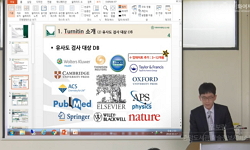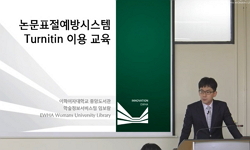본 논문은 최근 큰 반향을 일으키고 있는 생성형 인공지능 ChatGPT를 연구용으로 사용할 때 고려해야 할 연구윤리의 내용을 살펴본다. ChatGPT와 연구윤리를 직접 연결하는 논의가 많지 않기 때...
http://chineseinput.net/에서 pinyin(병음)방식으로 중국어를 변환할 수 있습니다.
변환된 중국어를 복사하여 사용하시면 됩니다.
- 中文 을 입력하시려면 zhongwen을 입력하시고 space를누르시면됩니다.
- 北京 을 입력하시려면 beijing을 입력하시고 space를 누르시면 됩니다.
부가정보
국문 초록 (Abstract)
본 논문은 최근 큰 반향을 일으키고 있는 생성형 인공지능 ChatGPT를 연구용으로 사용할 때 고려해야 할 연구윤리의 내용을 살펴본다. ChatGPT와 연구윤리를 직접 연결하는 논의가 많지 않기 때문에, 먼저 연구윤리의 전통적인 주제인 인 용과 표절, 위조와 변조, 정당한 저자표기, 연구자 공동체, 연구자의 사회적 책임 등을 차례로 ChatGPT 사용과 연결하여 검토할 것이다. 연구윤리에서 인용이나 정당한 저자 표기를 강조하고 표절이 문제가 되는 원리를 고려할 때, ChatGPT 관련 논의를 허용과 불허, 적발과 처벌의 관점에서만 보는 것은 부적절하고, 기존의 규칙들이 ChatGPT의 작동 방식에 제기하는 근본문제를 직시해야 한다. 이에 따라 연구 목적을 위해서 ChatGPT를 쓸 때에는 일단 그 사실을 최대한 밝히 고, 그럼에도 불구하고 해결할 수 없는 문제가 있음을 인식해야 한다. ChatGPT의 장기적인 사용이 연구자 공동체에 미 칠 영향과 연구자의 사회적 책임에 대해서도 고민해야 할 부분이 많다. 물론 ChatGPT를 비롯한 생성형 인공지능 기술이 아직 개발 초기 단계에 있는 만큼, 섣부른 결론을 내리는 것은 적절하지 않다. 그러나 신기술과 관련한 연구윤리에 대한 관심이 절실하고, 동시에 ChatGPT와 인공지능 기술의 도래로 근본적인 도전에 직면한 연구의 정의에 대한 연구자들의 논의와 합의가 시도되어야 한다.
다국어 초록 (Multilingual Abstract)
This paper examines research ethics in using the generative AI ChatGPT for research purposes. After reviewing traditional themes of research ethics and relevant principles, it will be argued to be inappropriate to discuss ChatGPT-related issues only f...
This paper examines research ethics in using the generative AI ChatGPT for research purposes. After reviewing traditional themes of research ethics and relevant principles, it will be argued to be inappropriate to discuss ChatGPT-related issues only from the perspective of permission, detection, and punishment. We need to consider the fundamental problem that the current rules pose concerning the way ChatGPT works. This leads to the proposal that the usage of ChatGPT should be clearly noted when it is used for research purposes and that some unresolved issues should be recognized. Although the advantages of ChatGPT cannot be denied, consensus on the appropriate scope of use is needed from perspectives of the research community and researcher's social responsibility. As generative artificial intelligence technologies are still in the early stages of development, researchers should pay attention to relevant research ethical issues, while not making hasty conclusions. In the conclusion, it will be also proposed to discuss and make a consensus regarding the definition of research that is premised on existing research ethics, but challenged with the advent of ChatGPT and AI technology.
참고문헌 (Reference)
1 김지영, "표절 안걸린다?…논문 쓰는 AI, 과학계 “윤리문제 우려”"
2 성균관대학교, "챗GPT 종합안내 홈페이지"
3 전북대학교, "우리대학, AI와 함께 ‘AI 활용 가이드라인’마련"
4 중앙대학교, "생성형 AI 활용 가이드라인"
5 세종대학교, "생성형 AI 교수 학습 기본 활용 가이드라인"
6 고려대학교, "국내 대학 최초 ChatGPT 활용 가이드라인제정"
7 윤영혜, "‘과학 투명성’ 위협하는 챗GPT...국제학술지 잇따라 새 지침 내놔"
8 Open AI, "Terms of use"
9 Google, "Terms of service"
10 Perrigo, B., "OpenAI used Kenyan workers on less than $2 per hour to make ChatGPT less toxic"
1 김지영, "표절 안걸린다?…논문 쓰는 AI, 과학계 “윤리문제 우려”"
2 성균관대학교, "챗GPT 종합안내 홈페이지"
3 전북대학교, "우리대학, AI와 함께 ‘AI 활용 가이드라인’마련"
4 중앙대학교, "생성형 AI 활용 가이드라인"
5 세종대학교, "생성형 AI 교수 학습 기본 활용 가이드라인"
6 고려대학교, "국내 대학 최초 ChatGPT 활용 가이드라인제정"
7 윤영혜, "‘과학 투명성’ 위협하는 챗GPT...국제학술지 잇따라 새 지침 내놔"
8 Open AI, "Terms of use"
9 Google, "Terms of service"
10 Perrigo, B., "OpenAI used Kenyan workers on less than $2 per hour to make ChatGPT less toxic"
11 Deutsche Welle, "Italy lifts ban on ChatGPT after data privacy improvements"
12 Hao, K., "How the AI industry profits from catastrophe" MIT Technology Review
13 Chee, F. Y., "German authors, performers call for tougher ChatGPT rules amid copyright concerns"
14 MIT Libraries, "Citing sources: Overview"
15 미래전략센터, "ChatGPT는 혁신의 도구가 될 수 있을까?: ChatGPT 활용 사례 및 전망"
16 Cacciamani, G. E, "ChatGPT: Standard reporting guidelines for responsible use"
17 UNESCO, "ChatGPT and artificial intelligence in higher education: Quick start guide"
18 ACS Nano, "Best practices for using AI when writing scientific manuscripts"
19 Saul, B., "Artificial intelligence is booming-So is its carbon footprint"
동일학술지(권/호) 다른 논문
-
공공기관 경영평가의 평가성 검토: 한전 사례를 중심으로
- 한국지식경영학회
- 우윤석
- 2023
- KCI등재
-
양가적 감정이 신기술 기반 서비스 도입에 미치는 영향: 메타버스 서비스 제공자를 중심으로
- 한국지식경영학회
- 이보람
- 2023
- KCI등재
-
- 한국지식경영학회
- 이윤석
- 2023
- KCI등재
-
BERTopic 모델을 이용한 항공사 서비스에서 지각된 고객가치가 고객 만족도에 미치는 영향 분석
- 한국지식경영학회
- 정의주
- 2023
- KCI등재





 ScienceON
ScienceON KISS
KISS






